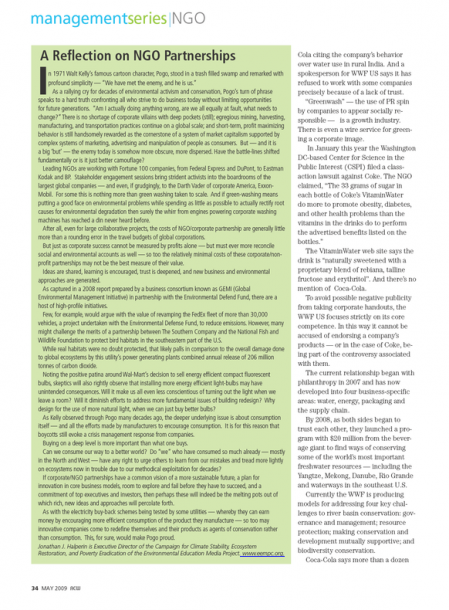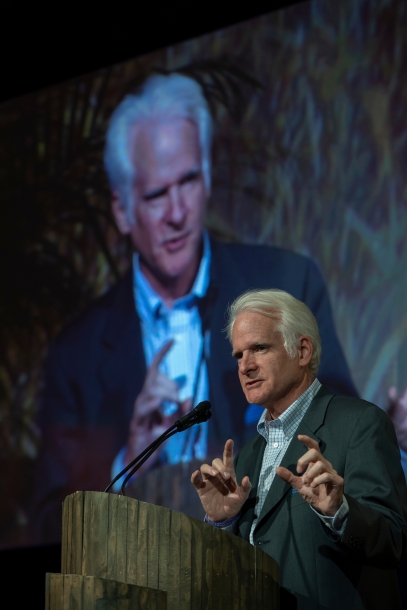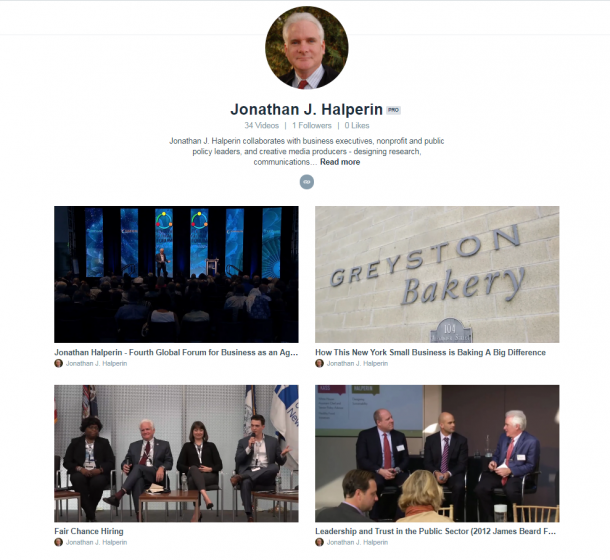You are here
A Reflection on NGO Partnerships
May 2009
Jonathan J. Halperin
Permalink: www.aircargoworld-digital.com/aircargoworld/200905?pg=36#pg36
In 1971 Walt Kelly’s famous cartoon character, Pogo, stood in a trash filled swamp and remarked with profound simplicity — “We have met the enemy, and he is us.”
As a rallying cry for decades of environmental activism and conservation, Pogo’s turn of phrase speaks to a hard truth confronting all who strive to do business today without limiting opportunities for future generations. “Am I actually doing anything wrong, are we all equally at fault, what needs to change?” There is no shortage of corporate villains with deep pockets (still); egregious mining, harvesting, manufacturing, and transportation practices continue on a global scale; and short-term, profit maximizing behavior is still handsomely rewarded as the cornerstone of a system of market capitalism supported by complex systems of marketing, advertising and manipulation of people as consumers. But — and it is a big ‘but’ — the enemy today is somehow more obscure, more dispersed. Have the battle-lines shifted fundamentally or is it just better camouflage?
But just as corporate success cannot be measured by profits alone — but must ever more reconcile social and environmental accounts as well — so too the relatively minimal costs of these corporate/non-profit partnerships may not be the best measure of their value.
Ideas are shared, learning is encouraged, trust is deepened, and new business and environmental approaches are generated.
As captured in a 2008 report prepared by a business consortium known as GEMI (Global Environmental Management Initiative) in partnership with the Environmental Defend Fund, there are a host of high-profile initiatives.
Few, for example, would argue with the value of revamping the FedEx fleet of more than 30,000 vehicles, a project undertaken with the Environmental Defense Fund, to reduce emissions. However, many might challenge the merits of a partnership between The Southern Company and the National Fish and Wildlife Foundation to protect bird habitats in the southeastern part of the U.S.
While real habitats were no doubt protected, that likely palls in comparison to the overall damage done to global ecosystems by this utility’s power generating plants combined annual release of 206 million tonnes of carbon dioxide.
Noting the positive patina around Wal-Mart’s decision to sell energy efficient compact fluorescent bulbs, skeptics will also rightly observe that installing more energy efficient light-bulbs may have unintended consequences. Will it make us all even less conscientious of turning out the light when we leave a room? Will it diminish efforts to address more fundamental issues of building redesign? Why design for the use of more natural light, when we can just buy better bulbs?
As Kelly observed through Pogo many decades ago, the deeper underlying issue is about consumption itself — and all the efforts made by manufacturers to encourage consumption. It is for this reason that boycotts still evoke a crisis management response from companies.
Buying on a deep level is more important than what one buys.
Can we consume our way to a better world? Do “we” who have consumed so much already — mostly in the North and West — have any right to urge others to learn from our mistakes and tread more lightly on ecosystems now in trouble due to our methodical exploitation for decades?
If corporate/NGO partnerships have a common vision of a more sustainable future, a plan for innovation in core business models, room to explore and fail before they have to succeed, and a commitment of top executives and investors, then perhaps these will indeed be the melting pots out of which rich, new ideas and approaches will percolate forth.
As with the electricity buy-back schemes being tested by some utilities — whereby they can earn money by encouraging more efficient consumption of the product they manufacture — so too may innovative companies come to redefine themselves and their products as agents of conservation rather than consumption. This, for sure, would make Pogo proud.
Jonathan J. Halperin is Executive Director of the Campaign for Climate Stability, Ecosystem Restoration, and Poverty Eradication of the Environmental Education Media Project.



